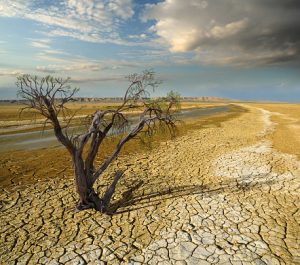
This is a rare occurrence in the United States compared to other countries, but it does occur in states like California and Massachusetts, with scientists forecasting more droughts as climate change patterns continue. The researchers say that severe droughts can put older people at risk for heart and lung illnesses, and even death.
Researchers of this study analyzed health and drought data between 2000–2013 from 618 counties in the western United States, which included hospitalizations for heart- and lung-related problems as well as deaths among individuals aged 65 and older. What they discovered was not an increase in heart problems and deaths, with lung-related hospitalizations actually falling during droughts. However, what they did find was that during severe droughts, the incidence of death did increase.
“Our study is one of the largest to explore the link between drought and human health and, as far as we know, the first to investigate cardiovascular- and respiratory-related admissions,” said lead author Jesse Berman, a postdoctoral researcher with the Yale School of Forestry and Environmental Studies.
The report explains that the risk of heart-related hospitalizations and death was greatest in areas such as the upper Midwest and Washington state, where droughts are actually less common compared to drought-stricken areas. No cause-and-effect link was noted, however, but it was observed that the increased risk was small.
In 2001–2012, an estimated 150 million people were affected by drought, especially across the western United States. The researchers of this study expressed their concern about the current trend of climate change, with temperatures become warmer than in decade’s past. Understanding the relationship between droughts and human health is likely to be a bigger concern in the future.
“Considering that drought is characterized by gradual onset and can last for extended periods of time, being aware of health risks could help authorities put preventative measures in place to protect people from the worse effects. But, much more research is now needed to explore these links,” Berman concluded.